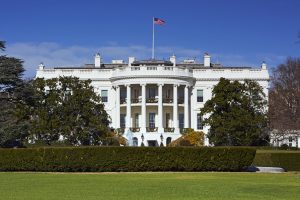It is clear that these have been busy months for federal environmental regulators, especially those working at EPA, the federal departments and the Council on Environmental Quality. Even the Department of Agriculture has found itself coping with greenhouse gases (GHG) issues in its administration of the laws applicable to agriculture and the national forests. The ambitious scope of the current “all of government” approach may be discerned after learning how many disparate federal agencies are employed in implementing this policy. So many actions have been proposed or completed that some state officials are experiencing “comment fatigue” because they are being overwhelmed by the scope, size, and complexity of these federal initiatives. The Environmental Protection Agency is, of course, at the forefront of these actions and activities, as described below.
Articles Posted in Public Policy
A Year-End Review of the Environmental Regulatory Landscape
Anne Austin recently joined Industry Insights host Joel Simon to discuss the key considerations and drivers of the Biden administration’s major regulatory initiatives.
 Our guest today is Anne Idsal Austin, a nationally recognized environmental lawyer who has held several high-profile federal and state regulatory roles. As a partner who recently joined Pillsbury’s environmental and natural resources practice, she provides strategic consulting and policy advice, helping clients navigate the dynamic regulatory and legal waters in an era of energy transition, decarbonization and an emphasis on ESG principles. Prior to joining Pillsbury, Anne was the Principal Deputy Assistant Administrator for the U.S. Environmental Protection Agency’s Office of Air and Radiation, known as OAR or OAR, where she had primary oversight over United States clean air policy and regulation. Prior to that, she served as the EPA regional administrator for Region 6, overseeing all federal environmental programs in Texas, Louisiana, New Mexico, Oklahoma and Arkansas. Prior to joining EPA, Anne held several positions where she shaped environmental and energy policy at the highest levels of government in the state of Texas. Welcome to our podcast, Anne.
Our guest today is Anne Idsal Austin, a nationally recognized environmental lawyer who has held several high-profile federal and state regulatory roles. As a partner who recently joined Pillsbury’s environmental and natural resources practice, she provides strategic consulting and policy advice, helping clients navigate the dynamic regulatory and legal waters in an era of energy transition, decarbonization and an emphasis on ESG principles. Prior to joining Pillsbury, Anne was the Principal Deputy Assistant Administrator for the U.S. Environmental Protection Agency’s Office of Air and Radiation, known as OAR or OAR, where she had primary oversight over United States clean air policy and regulation. Prior to that, she served as the EPA regional administrator for Region 6, overseeing all federal environmental programs in Texas, Louisiana, New Mexico, Oklahoma and Arkansas. Prior to joining EPA, Anne held several positions where she shaped environmental and energy policy at the highest levels of government in the state of Texas. Welcome to our podcast, Anne.
Anne Austin: Thanks so much. It’s great to be here today, Joel.
COVID-19 Relief: SBA Issues Regulations & Guidance on the Payroll Protection Program
New Small Business Administration (SBA) guidance implementing the Paycheck Protection Program (PPP) confirms that a somewhat narrower set of affiliation principles now applies to SBA loan programs, including the PPP. In “COVID-19 Relief: SBA Issues Regulations & Guidance on the Payroll Protection Program,” colleagues David B. Dixon, John E. Jensen and Steven A. Kaplan discuss how the SBA issued interim regulations and guidance on the Paycheck Protection Program, including confirmation of “affiliation” rules that may leave many companies affiliated with their investors and other businesses.
Understanding SBA Loan Opportunities Under the CARES Act Amidst COVID-19
The CARES Act provides $350 billion for small business Paycheck Protection Loans and an additional $10 billion for the existing Economic Injury Disaster Loan program. Colleague David Miller describes the new Paycheck Protection Loan Program and the existing Economic Injury Disaster Loan Program below. These are complex programs, with regulations still being developed by the Small Business Administration.
COVID-19: Understanding Business Interruption Insurance and Wide-Impact Catastrophes
Due to the spread of COVID-19, companies are facing unique challenges to their businesses, including supply chain interruptions, employee and customer safety concerns and government regulations, restrictions and shutdowns. In “COVID-19: Understanding Business Interruption Insurance and Wide-Impact Catastrophes,” colleagues Joseph D. Jean, Eric M. Gold, Janine Stanisz, Tamara D. Bruno and Brendan Hogan discuss how policyholders can expect insurers to put forth strong objections to many of their claims in an effort to reduce the liability exposure.
 Gravel2Gavel Construction & Real Estate Law Blog
Gravel2Gavel Construction & Real Estate Law Blog


